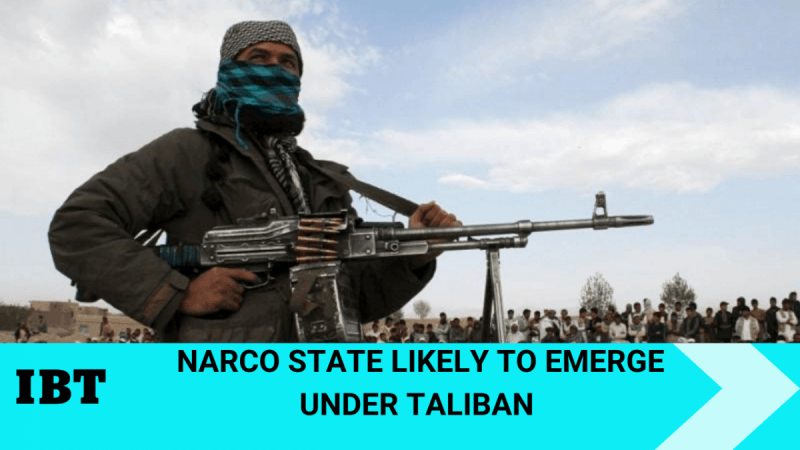Anyone nursing the thought that Taliban being primarily behind Afghanistan's woes is fooling themselves. The vicious eco system brought about by Taliban will not stay restricted to women being forced into a burqa. It'll create an ecology for drugs, terror and money laundering with a continents-long ripple effect to be felt sooner than anticipated.

Opium cultivation at all-time high
As known to the world, a narco state is blossoming in Afghanistan and the statistics point towards an unstoppable trend. As per the United Nations Office on Drugs and Crime, in 2020 there was already a 37 per cent increase in opium poppy. The total area under opium poppy cultivation in Afghanistan was approximately 224,000 hectares in 2020, which is an increase of 37 per cent or 61,000 hectares when compared to 2019.
These figures are as per the executive summary of the Afghanistan Opium Survey 2020. The survey also revealed that the number of poppy free provinces decreased from 13 to 12 in 2020. From the collected date, the potential opium production is estimated to be at 6,300 tons.
Drugs - Taliban's main sources of income
The Taliban have counted on the Afghan opium trade as "one of their main sources of income," Cesar Gudes, the head of the Kabul office of the U.N Office of Drugs and Crime (UNODC) told Reuters recently, adding, "More production brings drugs with a cheaper and more attractive price, and therefore a wider accessibility."
Afghanistan's drug trade is estimated by the UNODC at more than 80 per cent of global opium and heroin supplies. The UN Office of Drugs and Crime also says that three of the last four years have seen some of Afghanistan's highest levels of opium production.
UNODC also reported that all-time high for opium production was set in 2017. At the time weighing 9,900 tons and was valued at $1.4 billion in sales. A Reuters report quoted a U.S official with knowledge of Afghanistan's drug trade, as saying, "We've stood by on the sidelines and unfortunately, allowed the Taliban to become probably the largest funded and non-designated terrorist organisation on the globe."
Opium cultivation, not a local problem
Once converted into heroin, it is not only consumed in Afghanistan or the bordering countries but mainly in Europe. The drug shipments, for which again Taliban reportedly charges fees from smugglers, are bound for Africa, Europe, Canada, Russia, the Middle East, and other parts of Asia.
For Afghanistan even a state of anarchy would have been better. But unfortunately, that's not happening under the organised Islamic Emirate. It is no secret that most counter narcotics measures adopted in Afghanistan since the US invasion have failed miserably.
According to a 2018 SIGAR report (U.S Special Inspector for General for Afghanistan), Washington spent an estimated $8.6 billion between 2002 and 2017 to stifle Afghanistan's drug economy and Taliban's primary source of funding. The Taliban, local officials and small farmers heavily depend on opium to survive and feed their families. The restrictions and ban in turn stoke sympathy and support for the Taliban.
What's Taliban's version? And then what it does
On Wednesday, the Zabihullah Mujahid, spokesman for Taliban in its first-ever press conference since seizing control, 'assured' the world that Afghanistan will no longer be a hub for poppy cultivation or for the drug business. And they needed the world's support for finding alternative sources of poppy cultivation, it was reported in the Afghan channel Tolo News. Alongside while being fielded a wide range of questions, Mujahid also said that "rights of women would be respected within the framework of Islamic law."

What it claims and what it actually does at ground level are two completely different things. Experience and time have shown that Taliban cannot stop their main source of funding.
In 2000, while desperately seeking international legitimacy the Taliban banned poppy cultivation. Immense backlash followed back home and they had to immediately change their stance. Will this time be any different?









!['Had denied Housefull franchise as they wanted me to wear a bikini': Tia Bajpai on turning down bold scripts [Exclusive]](https://data1.ibtimes.co.in/en/full/806605/had-denied-housefull-franchise-they-wanted-me-wear-bikini-tia-bajpai-turning-down-bold.png?w=220&h=138)



